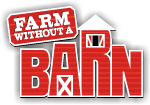Plants to Plant into SEA SOIL
 Plants to plant in SEA SOIL
Plants to plant in SEA SOIL
I realized after all these years using SEA SOIL in my garden that you can plant almost anything into SEA SOIL. Some plants do not like too many nutrients in their soil and they need to quickly dry out between watering but if you're willing to take the time to find the right mixture of SEA SOIL, you can plant any type of plant into SEA SOIL.
When you blend (for example 5, 10, or 15%) SEA SOIL into these types of plants you still get the nutrients and organics that will benefit the plant and still get the drainage the plant needs. Some plants, however, thrive in 100% SEA SOIL as it will never burn their roots.
I call our SEA SOIL the "Swiss Army Knife" of plant products because I can patch my lawn where my dogs have dug it up then go and empty the rest of the bag into my roses or even my tomato plants.
I know it may be hard to believe that an organic soil can work this well in so many different planting conditions but just be patient and play with SEA SOIL in different ratios to find out what works for your plants.
I have now been making and using SEA SOIL for over 12 years and it took me a while to get over the "gardening science" attitude to find out that looking at N: P: K percent on a chemical fertilizer package and matching those numbers to the tag on a plant is not the best approach when you have poor soil to begin with. "Grow your soil" from the start and you'll likely find that your plants might not need fertilizers at all. I haven't used fertilizers now in over 12 years and have enjoyed incredible results.
Upcoming Events
There are no events to display.
SEA SOIL Articles
Growing Your Soil
Not the Landfill. All of our bags, pallets and pallet wrap can be recycled. Our plastic is made from no. 4 LDPE (Low-density polyethylene) plastic which can be recycled by returning clean, dry, empty plastic bags to recycling drop off centers or retailers and municipalities (curbside collection also) that provide designated plastic bag recycling. Wooden pallets can be reused or recycled at designated wood recycling areas with your municipality.
OMRI Tested
We believe that all soils should have a required minimum set of testing standards when it comes to growing. That is why we contacted O.M.R.I. years ago to start the process of approving SEA SOIL. We regularly test our SEA SOIL for heavy metals, ecoli and even fecal coliforms to make sure SEA SOIL is the best choice for gardeners and growers.



